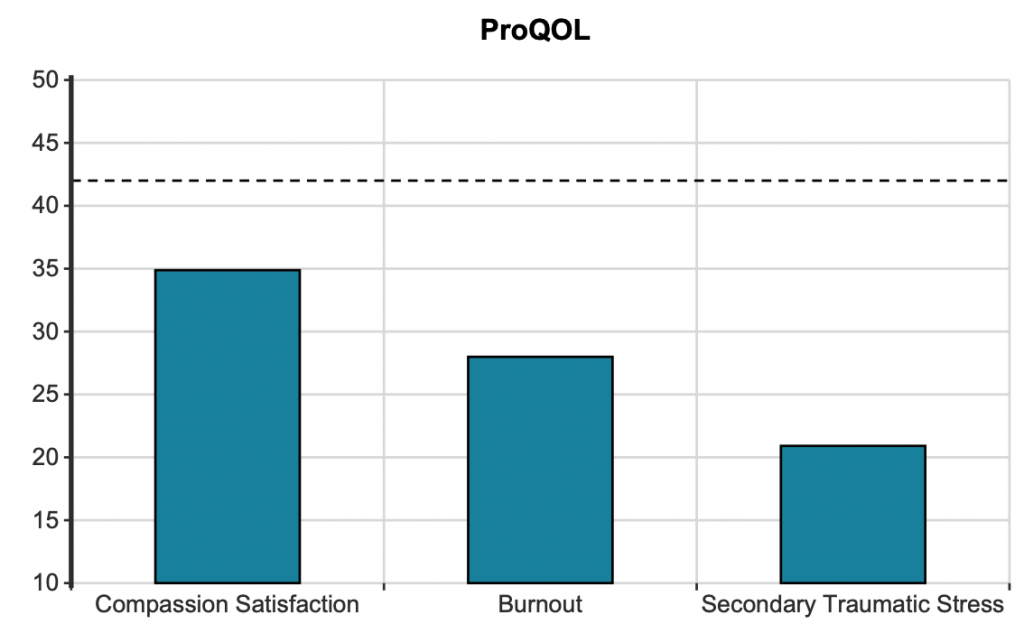I’ve heard from a lot of mental health professionals about times that they’ve been close to burnout, and I want to take the time to share with you how to measure your own professional wellbeing. You’re probably used to administering questionnaires to clients, and I reckon it’s also a good idea to check in on yourself occasionally. The Professional Quality of Life Scale is a new addition to NovoPsych and ideal as a self evaluation tool.
Professional Quality of Life Scale (ProQOL)
Used with: Anyone in a helping profession (psychologist, nurse, teacher, first responders, social services workers)
Measures: Compassion Fatigue, Work satisfaction, Burnout and Secondary Trauma
Helpful for: Checking in on yourself a few times a year to see how the stress of work is impacting you.

As a concept, “professional quality of life” are the feelings one has in relation to one’s work as a helper. Both the positive and negative aspects of doing one’s job influences work satisfaction. The ProQOL has three sub-scales:
- Compassion Satisfaction (pleasure you derive from being able to do your work well)
- Burnout (exhaustion, frustration, anger and depression related to work)
- Secondary Traumatic Stress (feeling fear in relation to work‐related primary or secondary trauma)

So I’d like to invite you to take a moment to reflect on how you’re doing professionally, by:
1. Logging in to NovoPsych here
2. Creating a client under your own name
3. Administer the Professional Quality of Life Scale (ProQOL) to yourself
4. Take a moment to reflect on your results. Consider what aspects of your work are causing you stress. Are there support structures that you can enlist? Have you been keeping up with your self-care routines? Do you need a break?
One thing I’ve setup for myself is to schedule NovoPsych to send me an email every month so that I can check in on my professional well-being as well as other aspects of personal wellbeing (DASS-21 and Valuing Questionnaire). I’d encourage you to do that same.
The ProQOL is particularly useful for professionals to self-monitor their satisfaction and as a prompt for self-care. In addition service managers seeking to facilitate staff wellbeing can use the ProQOL to track professional quality of life over time to help inform workload, leave and support decisions.
As mental health professionals we’re often systematically tracking the wellbeing of our clients, but I hope you’ll invest time in looking after yourself too. Because your wellbeing is worth the time.

